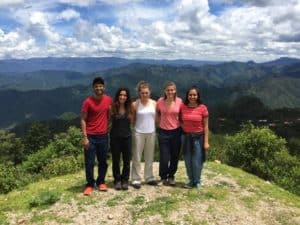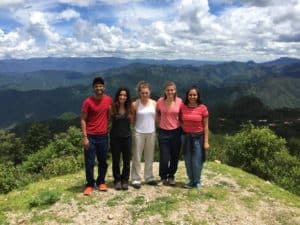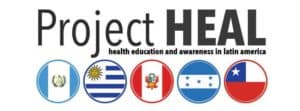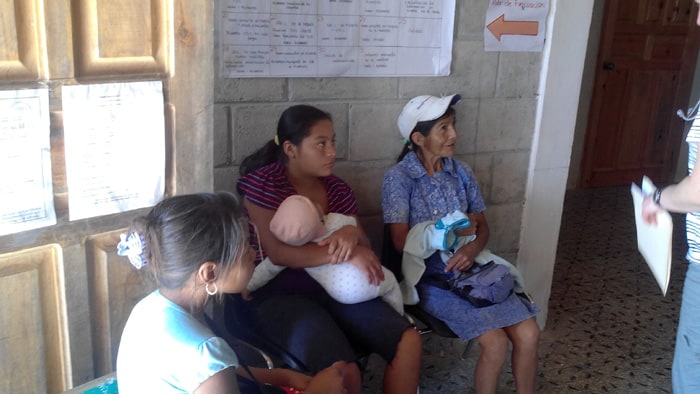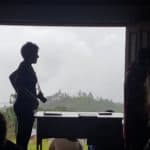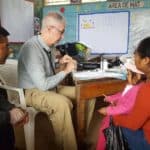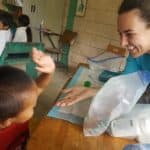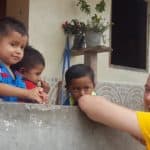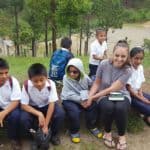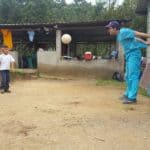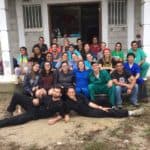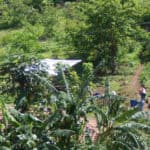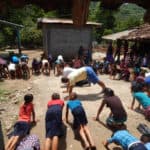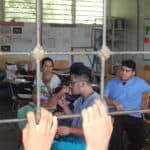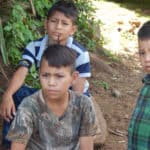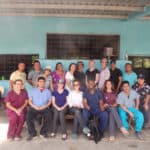We are always looking to receive new groups and individuals to visit us and share in the incredible work of Shoulder to Shoulder. Principle among the reasons for this is that people are the primary resource for development work. Shoulder to Shoulder is built upon the commitment of so many who develop relationships with the people of Southern Intibucá. But the more selfish reason for looking for new individuals and groups is that we have such a great time being their hosts. Generally, it takes us a lot of work to develop relationships with universities and groups to bring them to Honduras. But sometimes our opportunities just seem to fall out of the sky into our laps.
Sometime back in the Spring we got an email from an undergraduate student, Nava, at Duke University. The group, Project HEAL (Health Education and Awareness in Latin America), had been coming to Honduras annually with another NGO. It wasn’t going to work this year, and Nava was a little desperate to find another NGO to host them. We, of course were ecstatic, and even though we had something to learn about what they intended to do, and even though they were coming at a very busy time of our year, we immediately said yes. We figured we’d work out the details as we went along.
Five students, Nava, Noelle, Dahlia, Judy, and Lissa, would come to Camasca for five weeks to conduct four separate research projects on personal and community health issues. It would be during July and early August when Laura and I would be away for a time in the US; MAHEC would be here for two weeks in a forty person brigade; two MSW students from the University of Chicago would be doing an internship here. Then, to top it off, the surprise component would be that we would have to replace our brigade coordinator. Could we pull this off? Could we give Project HEAL a meaningful experience while we had so many other irons in the fire? Of course we could, and we did.
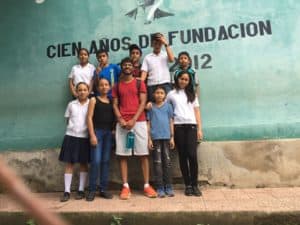
They wanted to live with families while here to get more of a feel for life in Camasca. We’ve done a little of this with volunteers, but finding homes for five students for five weeks was a big challenge. We contacted the teachers at the local primary school, the Urbana, who have been looking for ways to partner with Shoulder to Shoulder. Three teachers agreed to take the five students. There was a little bit of a catch, however. The Urbana wanted the students to teach English to the students while they were here. That wasn’t part of the project portfolio that Nava had given us. But when we approached him with the proposal, he graciously agreed. The students had never taught before. They had some anxiety about it when we picked them up in San Pedro Sula. But we had a feeling they might find some magic among the children.
They busied themselves with their four projects: Teen Pregnancy and Relational Dynamics in Adolescents; Self-Esteem for Adolescents; Cervical Cancer Attitudes, Awareness, Prevention and Treatment; and Trash Disposal and Related Attitudes/Behaviors. They visited families in the town center and among our smaller communities, doing interviews and conducting focus groups. They gathered their data, analyzed it, and put together some community trainings. They returned to the families and groups, shared their results, and taught about healthy practices. They did great work, and they will share with Shoulder to Shoulder the reports on their topics. We’re certain these will become valuable tools as we continue the work they invested in and prepare for their return next year.
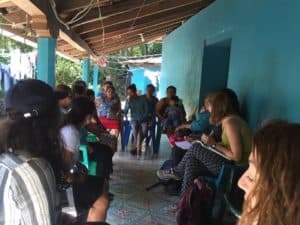
I guess we could say they lived up to their project name and this was a ‘healing’ event. But we have a feeling that the really impactful moments of their time with us happened beyond their diligent work in a less anticipated way.
We planned a debriefing with the group on the day before they were scheduled to leave Camasca. Their visit to our home happened immediately following their going away celebration at the Urbana School with the teachers and the students. We couldn’t start the debriefing right away because the five Duke students all arrived at our house in tears. The children, the teachers, and the families with whom they stayed, all expressed their affection for them and how much they would miss them. The kids had come so close to them — and they so close to the kids — that they had indeed become part of this community. The families now had adopted a son and four daughters, new brother and sisters, to the point that one of the Duke students was speaking to us of her cousin when we realized that it was a cousin of the family with whom she was staying. Their study was very important and meaningful, and yet the memories impressed on their hearts may have little to do with the particulars of their service. Their memories will forever include hiking up mountains, attending a rodeo during the town’s fair, taking a trip to the hot baths of Gracias, Lempira, being cared for by a second mother when suffering a stomach virus, and most especially the joyous smiles of children who are so welcoming of new friends.
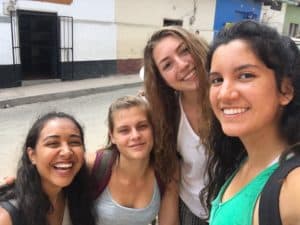
I suppose we often consider ‘healing’ a clinical response to persons who present themselves in need. We heal others when we diagnose their need and prescribe and initiate a treatment. But healing and finding health is so much more. It seems that these Duke students have taught and learned that healing is about meeting and being met, and ultimately loving and being loved.
Click above for Facebook Page
Nava, Noelle, Dahlia, Judy, and Lissa — you all have homes here. We look forward to your return.


